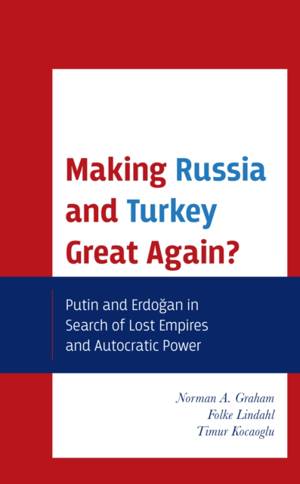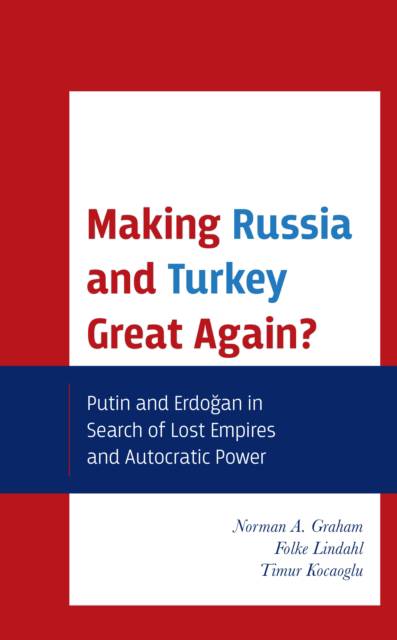
Bedankt voor het vertrouwen het afgelopen jaar! Om jou te bedanken bieden we GRATIS verzending (in België) aan op alles gedurende de hele maand januari.
- Afhalen na 1 uur in een winkel met voorraad
- In januari gratis thuislevering in België
- Ruim aanbod met 7 miljoen producten
Bedankt voor het vertrouwen het afgelopen jaar! Om jou te bedanken bieden we GRATIS verzending (in België) aan op alles gedurende de hele maand januari.
- Afhalen na 1 uur in een winkel met voorraad
- In januari gratis thuislevering in België
- Ruim aanbod met 7 miljoen producten
Zoeken
Making Russia and Turkey Great Again?
Putin and Erdogan in Search of Lost Empires and Autocratic Power
Norman A Graham, Folke Lindahl, Timur Kocaoglu
Hardcover | Engels
€ 186,45
+ 372 punten
Uitvoering
Omschrijving
This book discusses the rise of Putin in Russia and Erdogan in Turkey to authoritarian power in the context of the global debate over the fragility of democracy and the persistence of authoritarianism. It is both historical and theoretical in it treatment of the politics, economics and international relations of Russia and Turkey.
Specificaties
Betrokkenen
- Auteur(s):
- Uitgeverij:
Inhoud
- Aantal bladzijden:
- 278
- Taal:
- Engels
Eigenschappen
- Productcode (EAN):
- 9781793610225
- Verschijningsdatum:
- 19/03/2021
- Uitvoering:
- Hardcover
- Formaat:
- Genaaid
- Afmetingen:
- 152 mm x 229 mm
- Gewicht:
- 580 g

Alleen bij Standaard Boekhandel
+ 372 punten op je klantenkaart van Standaard Boekhandel
Beoordelingen
We publiceren alleen reviews die voldoen aan de voorwaarden voor reviews. Bekijk onze voorwaarden voor reviews.









